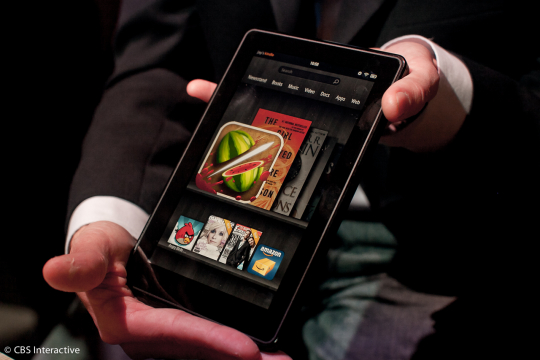The entire web was set ‘on fire’ this morning by Amazon’s tablet announcement (no pun intended). After months and months of rumors, the online retailer finally unveiled its Android slate: the Kindle Fire.
Sure, the tablet may be one of the best Android-based offerings we’ve ever seen, but it’s still no iPad. However, there is one thing that I believe the Cupertino company could learn from Amazon and its new device…
Freedom of choice. PC Magazine’s Sascha Segan had an interesting conversation with Jon Jenkins, the director of Amazon’s Silk browser project. The developer explained Amazon’s stance on users rooting (aka jailbreaking) its new tablet:
“Amazon’s new Kindle Fire tablet has a great user interface, but many of our readers already want to get rid of it. That’s OK. Amazon isn’t doing anything special to prevent techies from “rooting” and rewriting the software on its powerful yet inexpensive new tablet. “It’s going to get rooted, and what you do after you root it is up to you,” Jenkins said.”
The programmer went on to say he doesn’t know if the tablet’s bootloader is locked or not, so that could be an obstacle for Android hackers. “The company won’t help hackers root the tablet, it just isn’t actively trying to stop them,” said Jenkins.
Imagine if Apple had this type of attitude. We’d all still be using comex’s JailbreakMe tool to unlock our devices’ potential with a single tap of the display. What has Apple gained by disabling these exploits? Less jailbreakers? I don’t think so.
While I don’t see Apple taking this stance anytime soon, it’ll be interesting to see this approach does for Amazon’s tablet. The Kindle Fire has a dual-core processor, a sharp IPS display, and it starts at $199. Users can buy it and then tweak the OS to their liking. Interesting.
Would it hurt or help Apple to have this kind of attitude?
